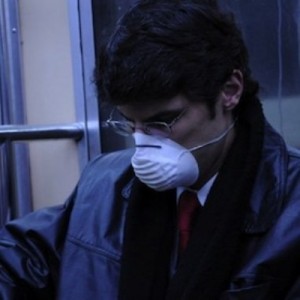
An outbreak of disease linked to bacteria that cause meningitis has sickened four students at a major California university, prompting discussions with federal regulators about hastening approval of a new vaccine.
The students, at the University of California at Santa Barbara, were all sickened within a three-week period last month with meningococcal disease, a sometimes fatal illness that can affect the brain or the blood, according to a spokeswoman for the Santa Barbara County Department of Public Health.
The students were stricken by a form of the bacteria that does not respond to the meningitis vaccine currently approved for use in the United States, said the spokeswoman, Susan Klein-Rothschild.
A vaccine known to be effective against this form of meningitis is approved for use in Europe, and Santa Barbara public health officials were in discussions with the federal Centers for Disease Control and Prevention about using it to protect students at the California university.
The discussions come after federal officials agreed to allow Princeton University in New Jersey to administer the European vaccine, Bexsero, after eight students there were diagnosed with similar infections since March.
Meningitis, which causes the brain and spinal cord to swell, is spread through coughing and exchanges of saliva, and people living in dormitories or other crowded living quarters are especially at risk.
The most severe cases can result in death, hearing loss, brain damage, kidney disease or amputation of limbs.
In the Santa Barbara cases, one student has been permanently disabled, Klein-Rothschild said, declining to provide further details on the case, citing privacy issues.
To prevent additional cases, Santa Barbara public health officials will provide the antibiotic Cipro to students and others who may have been exposed to the bacteria. Students will also be taught to recognize and respond quickly to signs of infection, which include fever and headache.
In addition, the university is suspending social events by fraternities and sororities, saying the parties put too many students in close quarters and could cause the outbreak to spread further.
Students and faculty can also protect themselves by maintaining good hygiene and nutrition, and getting plenty of sleep during the highly stressful exam period, which begins this month, Klein-Rothschild said.
Bexsero, a new vaccine made by Swiss drugmaker Novartis, is designed to protect against serogroup B, a strain of meningitis that is not as common in the United States as it is in other parts of the world, Reynolds said.
source: Yahoo News



 What is cervical cancer?
What is cervical cancer? Federal health regulators are warning the public that certain cardiac defibrillators recalled by Philips Healthcare may fail to deliver a needed shock in an emergency.
Federal health regulators are warning the public that certain cardiac defibrillators recalled by Philips Healthcare may fail to deliver a needed shock in an emergency.
 Now help is only a phone call away for people with speech and hearing disabilities in the eastern part of the country with the launch of a toll-free helpline Tuesday, the first in this region.
Now help is only a phone call away for people with speech and hearing disabilities in the eastern part of the country with the launch of a toll-free helpline Tuesday, the first in this region. Dr J C Mohan, director of cardiology, Fortis Hospital, Shalimar Bagh has been elected as Honorary Fellow of the American Society of Echocardiography (FASE).According to a statement by Fortis Hospital, Dr Mohan is the first Indian to be nominated as the honorary fellow of this prestigious society.
Dr J C Mohan, director of cardiology, Fortis Hospital, Shalimar Bagh has been elected as Honorary Fellow of the American Society of Echocardiography (FASE).According to a statement by Fortis Hospital, Dr Mohan is the first Indian to be nominated as the honorary fellow of this prestigious society.




.jpg)